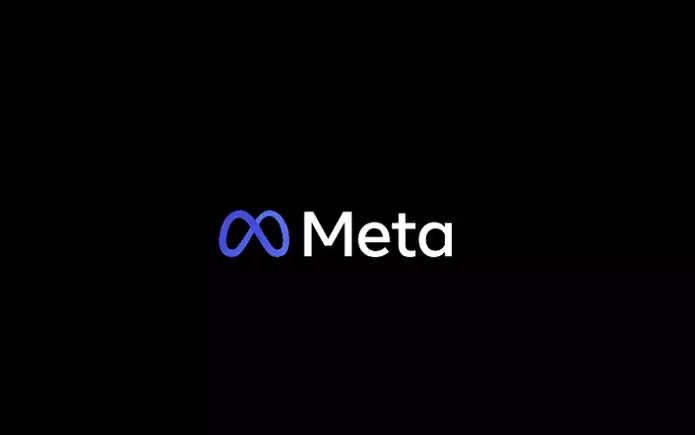Meta, the behemoth behind Facebook and Instagram, is currently riding the waves of public scrutiny as it attempts to detach its platforms from political content. However, this posturing isn’t synonymous with having a substantial, genuine impact on political discourse across its platforms. Just recently, Forbes unveiled that Facebook has been inundated with advertisements riddled with misinformation about impending elections, significantly profiting from campaigns indisputably contravening its internal policies. This begs the question: Is Meta genuinely committed to steering clear of political influence, or is its self-imposed distance mere lip service, designed to placate regulatory bodies and critics alike?
At the heart of this controversy, striking imagery and incendiary rhetoric are helping to fuel political discontent. One advertisement, for example, displayed an edited image of Vice President Kamala Harris adorned with devil horns amidst a backdrop of a burning American flag. These ads don’t just serve to influence opinions—they amplify divisiveness and manipulate sentiments, continuing a trend observed during the tumultuous 2016 election cycle, where Russian operatives unleashed a barrage of conflicting narratives aimed at seeding discord among American voters. This pernicious strategy leveraged the vast reach of social media platforms, and consequently, it has put Meta in a precarious position as it scrambles to navigate its ethical responsibilities.
Meta’s attempts to rein in political discourse on its platforms have been increasingly evident. Over recent years, the company has intentionally diminished its engagement with news content, purportedly to bolster user experience during divisive times. The motivation behind these decisions seems strategically timed to preemptively quell potential backlash amid the upcoming electoral fervor. However, one must consider whether this detachment is feasible given the intrinsic role politics plays in the public conversation.
In the wake of Zuckerberg’s assertion regarding user preferences against a backdrop of political angst, one must ask whether Meta’s shift away from politically charged topics can sustain user engagement or whether it will incite frustration, ultimately leading to a decline in active users. After all, social media thrives on the immediacy of current events, including politics. The more one attempts to stifle this fundamental aspect of contemporary discourse, the greater the risk of alienating users who thrive on real-time engagement.
The ceaseless flow of misinformation surrounding elections on Meta platforms reveals a troubling paradox in the company’s policy adjustments. Despite efforts to curtail political content, the very structure of Facebook and Instagram allows for rapid dissemination of misleading narratives. With algorithms designed to maximize user engagement, scandalous or contentious posts frequently garner more attention than benign discourse. This has significant implications as Meta inadvertently continues to play a role in perpetuating these detrimental narratives, raising concerns over its accountability.
With Threads—the company’s new Twitter-like application—Meta faces an uphill battle. Designed to enable real-time discussions, it is inherently entangled with the very political dialogues the company aims to diminish. The failure to address the role of emotions in these discussions may result in missed opportunities for fostering genuine interactions as users grapple with navigating a permitted yet polarizing landscape.
Further complicating Meta’s approach is the ambiguity surrounding its definition of “political content.” The current framework seems overly expansive, encompassing any discussion linked to governmental or electoral matters. This vagueness offers little guidance to users or advertisers about what is permissible, potentially resulting in a surge of content that skirts the defined boundaries. Clearer definitions and stricter compliance measures will be essential if Meta hopes to genuinely distance itself from the tumultuous political landscape.
As the election season intensifies, Meta’s actions will face increased scrutiny, and the company must brace itself to balance financial interests with ethical considerations. The looming question remains: Will Meta evolve its policies in response to the burgeoning demands for clearer guidelines, or will it succumb to the pressures of maintaining a profit-driven, engagement-focused model that disproportionately magnifies harmful political discourse?
In the end, Meta’s journey towards disengaging from politics reveals a complex interplay between ethical responsibility, financial motivation, and user expectations. While the ideal of a serene platform devoid of political tension is appealing, the reality remains that politics permeates social conversation. As Meta navigates this intricate landscape, it must confront the inherent contradictions in its mission, as well as the realities of its own influences on global political narratives. Failure to adapt may turn this ambitious endeavor into yet another chapter in the ongoing saga of social media’s profound entanglement with the world of politics.

